Andrew Rule: Victoria’s history of using killers as political pawns may be repeated in Paul Denyer case
Will a triple murderer go free some day because the Andrews government “did a Bolte” and used a killer as a political pawn?
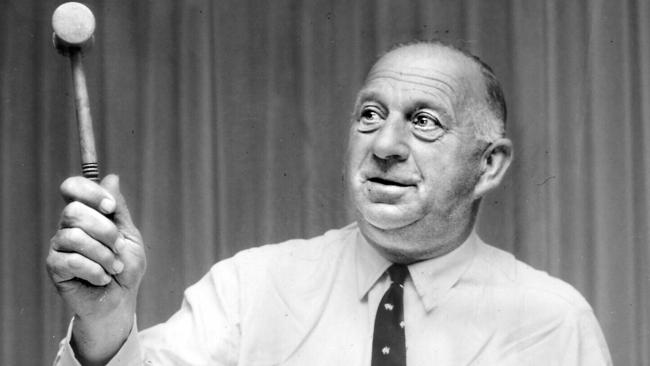
Andrew Rule
Don't miss out on the headlines from Andrew Rule. Followed categories will be added to My News.
There are other monsters besides Paul Charles Denyer, too many of them, but he is the spectre that looms over us every time a deranged sex killer strikes.
The fact that Denyer butchered three young women in the winter of 1993 has burned deep in our collective memory. He’s as notorious in our time as the “Brownout Strangler” Eddie Leonski was to wartime Melbourne in 1942.
Denyer and Leonski were arrested fairly quickly (or else each would have kept killing) but their serial murders shocked us so deeply that their names have not faded the way most do. There’s a whiff of Jack the Ripper in their stories.
Leonski, a US soldier quartered at Camp Pell in Royal Park, was hanged within months of strangling his third victim. The US commander Gen. Douglas MacArthur wanted the death sentence and Leonski was hanged at Pentridge.
Leonski’s execution was a political act by an embarrassed US Government determined to be seen doing the right thing for a wartime ally and host city for American troops. In a civilian court in peacetime, Leonski might not have been found mentally fit to plead but for a court martial it was politically expedient to hang him.
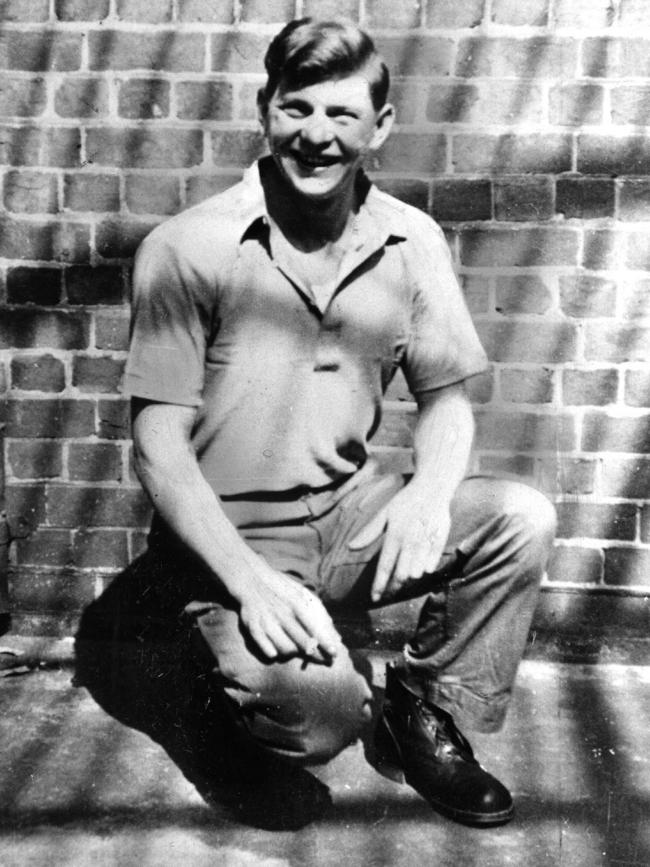
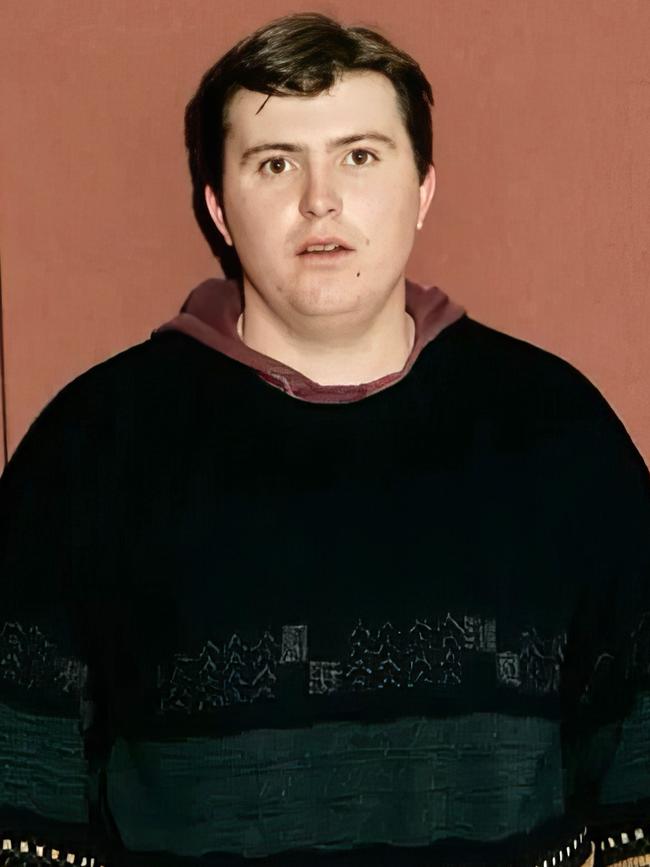
Of course, we no longer hang even the vilest murderers like Denyer and others beyond redemption or rehabilitation: the likes of cop killer Bandali Debs, Bega schoolgirl murderer Leslie Camilleri and polite psychopath Paul Steven Haigh, who murdered six people outside and “assisted the suicide” of a seventh in prison. And there are others, like Ray “Mr Stinky” Edmunds, Julian Knight and Craig Minogue.
There are good reasons why Denyer is still caged after three decades — and should be for a long time yet.
What makes a monster?
This one was the third of six children, born in Sydney’s west to battling English migrant parents who moved to Melbourne when he was 10.
The family knew that as a baby, Paul rolled off a bench and hit his head. Whenever he said or did strange things, they blamed that accident.
Neighbours avoided the five Denyer boys because they were out of control. But, even in that bunch, Paul was the odd one.
He would allege, much later, he was the victim of physical abuse by an older male. If that’s true, then childhood abuse is something he shares with many, maybe most, vicious killers. But that is no comfort to his victims’ families or to those he might harm if he were ever released.
A pudgy, oversized teenager, Denyer was a lazy loner who couldn’t hold down any of his dead end jobs. He grew increasingly strange and was obsessed with making knives and imitation guns and watching his favourite violent horror films.
In February 1993, while living in a Frankston flat, he befriended a young neighbour, Donna. One day she came home to find her cat and two kittens with their throats and stomachs slashed and chilling messages daubed on the wall in blood.
Donna moved out immediately, correctly guessing she was the intended target of the attack, although she did not suspect Denyer at first.
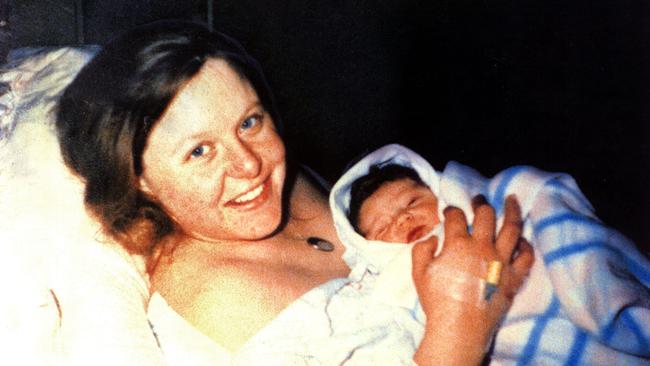
Four months later, on June 12, the body of 18-year-old student Elizabeth Stevens was found in a bushy reserve in Langwarrin. She had been strangled, stabbed, had her throat cut and had patterns carved into her chest.
On July 8, new mother Deborah Fream, 22, left her baby at home in Seaford with a friend for a few minutes to buy milk and eggs. She was abducted by a man who hid in the back of her car outside the shop.
Despite Debbie deliberately hitting an object with the car to attract attention, flashing the lights and driving erratically, no one noticed. She was forced into scrubland, strangled and stabbed.
On July 30, 17-year-old Natalie Russell took her usual short cut down a lane next to a golf course on her way home from school. She was dragged through a pre-cut hole in the fence and killed like the others.
Each murder had been committed when it was raining or about to rain so forensic evidence was washed away.
The heroine of the investigation was a vigilant “postie” who noticed in her rear vision mirror that a man who had been slumped out of sight in his parked car as she passed had then sat up. She noted the car’s registration then went to a nearby house and called police.
It was too late to save Natalie Russell but the postie’s tip-off saved whoever might have become the next victim. The suspect car was gone when police got to the street but, after Natalie’s body was found, the registration number led detectives to its owner. Paul Charles Denyer.
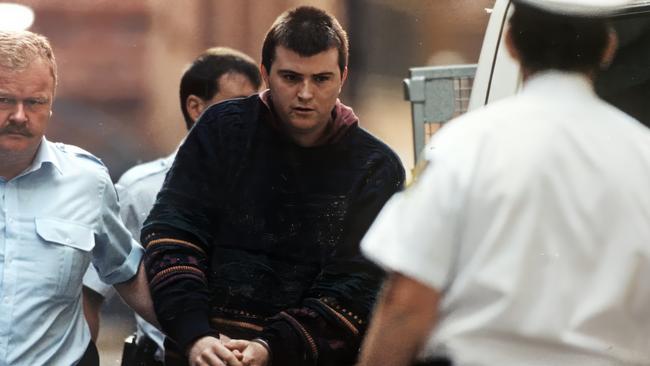
He was cocky and overly helpful, basking in the attention. Homicide detectives knew they had the right man when he smirked that he could remember exactly where he’d been seven weeks earlier when the first murder happened.
Despite Denyer’s alibi lies, it took more than 800 questions before one about cuts on his hands cracked his false version of events. He then calmly confessed without showing a shred of remorse. He never has.
Denyer was what psychiatrists would call a criminal narcissist with strong sadistic impulses. Like many serial killers, he had worked up to murder by torturing or killing animals and had been a peeping Tom, thief and fire setter.
There was no reason to think that anything but old age and illness would change him. That’s why Judge Frank Vincent sentenced him to life with no minimum in December, 1993.
But a successful appeal against that sentence gave him the 30-year minimum that has allowed Denyer to apply for parole this month. That’s what angers and confuses the relatives of his victims, who fear the parole board might one day release him while he’s young enough to harm someone else.
The example of serial rapist Adrian Bayley, who killed Jill Meagher while on parole, is a constant reminder to both sides.
It’s hardly surprising that friends and family of Denyer’s victims want the certainty and sense of justice that would arise from a “one-off” law guaranteeing that he stays in prison until he’s at death’s door.
There is a precedent for this “one-off” legislation: Hoddle St shooter Julian Knight and Russell St bomber Craig Minogue are both in prison well beyond their original sentences because of special laws enacted to keep each of them behind bars permanently.

But the State Government’s argument, possibly valid but not necessarily sincere, is that if a specific law was enacted to detain Denyer for life, it might mean he would appeal. And if he won such an appeal (the argument goes) it could pave the way for Knight and Minogue to do the same.
After much controversy and an emotive debate inside and outside the House, the Government on Wednesday blocked (by just two votes) an Opposition Bill for a law to keep Denyer imprisoned for life, like Knight and Minogue.
Family and friends of his victims say they are devastated by the result.
No one doubts their sincerity or their pain. Nobody could blame them for an emotional reaction to the unspeakable loss they have suffered.
The fact that Denyer can apply for parole only once every five years under the terms of the Government Bill might be some consolation once their initial anger eases.
On the other side of the Denyer parole debate, the sincerity of some on the Government side might be suspect. Politics, as in political interference, can dictate the severity of punishment. Or lack of it.
So while Premier Daniel Andrews puts on his game face to announce that the Denyer decision is for the best in the long run, one view around Spring St is that he is punishing victims’ families for daring to ask the Opposition to push their cause.
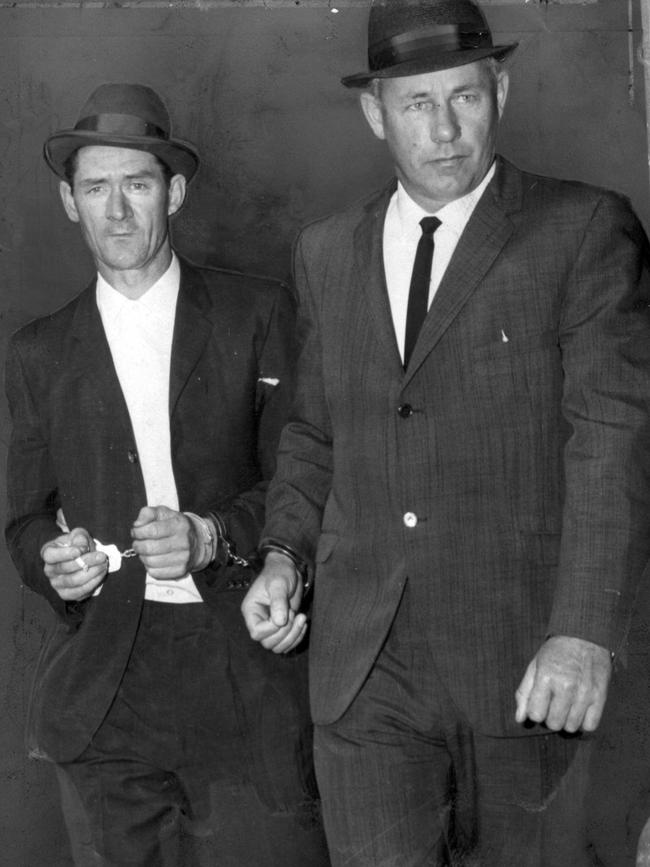
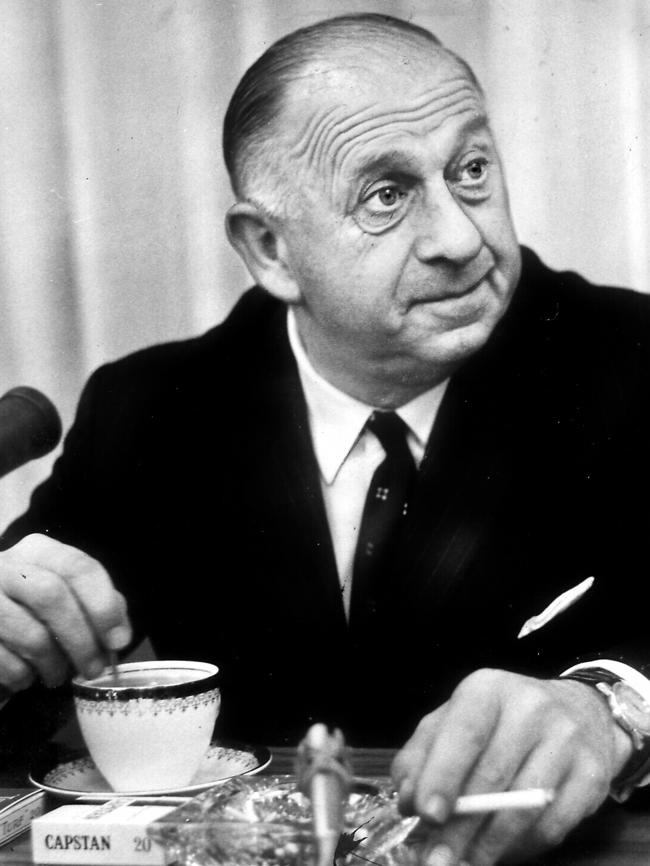
In effect, Labor has held hands with the Greens and Legalise Cannabis Party to block an Opposition Bill that would have thrown away the key on Denyer. It’s not only those on the losing side who suggest the Government motive is not high mindedness but bloody mindedness.
It’s a variation of the same methods that another dominant and domineering premier practised for a record 17 years. Sir Henry Bolte was on the other side of politics from Daniel Andrews but they would understand each other’s head-kicking style very well.
It was Bolte who cynically refused to let Cabinet commute the death sentence on Ronald Ryan in 1967, therefore ensuring that the man who’d shot a warder while escaping from Pentridge would hang, the last Australian to do so.
There were plenty of men in prison who deserved the gallows more than Ryan did. Ryan was a hard man, a thief and armed robber, who’d disarmed a warder and shot another to avoid being shot himself. He was a long way from being the depraved child sex killer Keith Ryrie, who appeared in a prison play on the eve of Ryan’s hanging.
Ryrie had raped and killed a five-year old girl, yet his death sentence was routinely commuted. But Bolte did not care. He had boasted that a hanging would get him one last election win and Ryan drew the short straw.
Some would say that cynical act still overshadows the achievements of a remarkably durable politician.
Like Leonski, Ronald Ryan was hanged for political expediency. We will see if the Denyer case becomes the same thing in reverse.
Will a triple murderer go free some day because the state government “did a Bolte” and used a killer as a political pawn?





